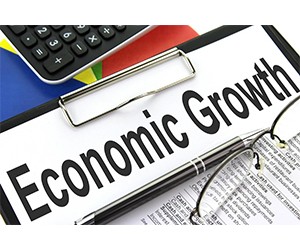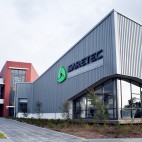“Pivotal uncertainties relating to the future of the South African economy hinge on the integrity and trust in institutions and our ability to develop appropriate skill levels”, says Prof André Roux, economist and head of the Futures Studies programmes at the University of Stellenbosch Business School (USB).
“We need to make sure our young population is suitability equipped to find jobs. We need to mobilise our young people, training them in competitive high tech skills, in order to bring about a better future for our economy.”
He was one of four speakers presenting at a business knowledge seminar called On the Horizon and hosted by the University of Stellenbosch Business School (USB), where he spoke about the economic trends for 2019 and the impact on businesses in South Africa.
“We are not producing enough people from our education system who are capable and able to take up jobs in the tertiary sector. We have a problem situation whereby 60% of adults do not have 12 years of education and for most jobs today, we could argue that 12 years of education is the absolute minimum requirement,” he says.
He added that South Africa’s Human Development Index (HDI), which measures knowledge, life expectancy and average incomes, is underperforming. “Unemployment is firmly entrenched at about 25% to the economic growth, becoming increasingly aware of the vast reality that economic growth all by itself does not create jobs,” he said.
On South Africa’s global competiveness, he says that since 2012 we have deteriorated, having dropped 20 positions in the last two years. “We are no longer the most competitive country in Africa, with Mauritius being the most competitive. Our competiveness is being eroded compared to many other countries.”
Speaking at the event on politics was Ebrahim Fakir, Director of Programmes at the Auwal Socio-Economic Research Institute (ASRI), who says all political parties in South Africa “is a mess”.
“Intra-racial inequality in South Africa is increasing and the party is ending for all political parties in the 2019 election year,” he said. “The future of institutions in South Africa are at risk as a result. People will seek out different forms of organisation if political structures do not serve the people.”
He added that it is clear that the ANC will win with a majority. “There just isn’t significant levels of public trust in a political alternative to keep society together for people to shift their vote away from the ANC. the question is what the ANC will do with that majority.”






